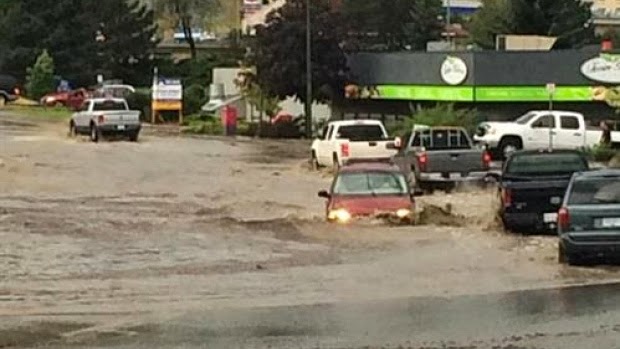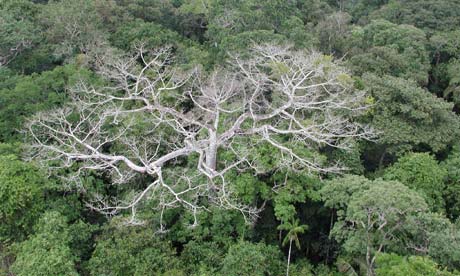A big thank you to the Unitarian Universalist Fellowship of Kamloops that passed the following resolutions today! Please fee free to borrow from the links or other information if you need it.
Support guide for anti-pipeline resolutions
prepared by UU-SEA committee
Using this guide:
Text of the “whereas” preamble is printed in red, followed
by additional supporting information.
Footnotes (most with clickable web links) are at the bottom of each
page.
A. WHEREAS the effects of climate change are real, and we
must immediately lower carbon emissions from burning fossil
fuels;
Evidence for warming. “The idea that Earth
is warming partly because of the emissions of greenhouse gases to the
atmosphere is one of the most certain concepts in natural science. The idea
that greenhouse
gases
increase radiative forcing is an old idea that has withstood a variety of
analyses to emerge intact
(an
accessible history is available on the Web site of the American Institute of
Physics at www.aip.org/history/climate/co2.htm
). The peer-reviewed papers that provide the evidence that human-induced
emissions of greenhouse gases over the twentieth century have led to increases
in temperature and changes in rainfall, wind, humidity, sea level, ocean
acidity, snow cover, etc. have been assessed rigorously through the Intergovernmental
Panel on Climate Change (IPCC) in a series of reports.
No serious academic body, significant institution, or national government
doubts the basic science (e.g., Somers 2009).”
Effects: Climate change is increasing
the intensity and frequency of extreme weather events like Hurricane Sandy, and
causing record low Arctic sea ice levels,
droughts, wildfires, earlier springs and later falls, and increasing
acidification of oceans. For more
details on these effects, click on these links:
we should
approve no new pipelines in the absence of a comprehensive federal carbon
dioxide reduction plan;
Current plans: An international
assessment of countries' performance in fighting climate change has placed Canada near the
bottom (54th of 61) among the world's biggest emitters of greenhouse gases. Only Saudi
Arabia, Iran,
Kazakhstan, Turkey, China,
Poland and Russia were
ranked lower. Our country’s current plans to
reduce the “intensity” of emissions and store carbon dioxide are completely
inadequate to the problem – they will do nothing to solve the problem of
climate change. “The carbon in Alberta’s economically recoverable oil sands reserve
would release 69 billion tonnes of carbon dioxide if it was all extracted and
burnt - the equivalent of a hundred years of Canada’s total greenhouse gas
emissions. British Columbia has adopted a
leadership role and it is essential that Canada do the same, to accept our
moral responsibility and demonstrate leadership to the rest of the world.”
B. WHEREAS the other environmental costs and risks of these
projects are unacceptably high;
Spills: Enbridge pipelines
have a history of spills with poor responses. The US National Transportation
Safety Board went unusually far in criticizing the Enbridge response to its
massive Michigan
pipeline spill. Citing pervasive
organizational failures, failure to correctly identify deterioration of the pipeline
and poorly trained staff in the Edmonton
control centre who ignored safety procedures, the NTSB likened the Enbridge response
to the Keystone Kops. Perhaps more seriously, Enbridge resisted
pressure to include documents detailing the Kalamazoo spill and response until the review
panel demanded this information be included.
Although the Michigan
Kalamazoo River
spill was the most serious of Enbridge spills, it’s important to note that it was
not an isolated event.
Kelly Marsh, a Kitimat millwright, crunched Enbridge's own
numbers and found that the risk of at least one medium or large spill over 50
years is around 82%. Even Enbridge acknowledged
an 18.8 per cent chance of a full bore rupture during the expected life of the
pipeline.
Once a dilbit pipeline ruptures, it is no
ordinary oil spill, especially if it comes in contact with water. Because tar sands oil, or bitumen, is too
thick to flow, it needs to be mixed with a thinner, or diluent. The mixture is referred to as diluted
bitumen, or dilbit for short. When
exposed to air, the diluent evaporates and the remaining heavy oil sinks in
water, instead of floating on the surface, making clean-up very difficult . The
EPA reported in October 2012 that large amounts of oil are still accumulating
in three areas of the Kalamazoo River, and asked Enbridge to dredge
approximately 100 additional acres. During the original cleanup effort,
dredging was limited to just 25 acres because the EPA wanted to avoid
destroying the river's natural ecology.
Tankers: The waters of Douglas Channel (the waters
where tankers would pick up oil form Northern Gateway's terminus) are very
dangerous. Mal Walsh, a Master Mariner
with 40 years of experience in the
international oil exploration and shipping industry, has called
Enbridge's tanker routes “flawed and dangerous.” The
tankers in Vancouver
picking up oil from Kinder Morgan's terminus would sail through a very busy
port, alongside heavily populated communities. The Kinder Morgan pipeline
project would result in a quadrupling of tanker traffic from the Burnaby terminal. Officially, there is still a moratorium on
oil tankers on BC’s west coast, although it is already being ignored.
Effects of pipeline building on pristine environment: The Northern Gateway pipeline
threatens woodland caribou. Scientific literature suggests that “linear
disturbances actually contribute to population decline,” said Elena Jones, a
wildlife biologist with Resources North, a joint government-industry
organization based in Prince George,
B.C. She has studied caribou in the region for a decade. “They don’t co-exist
well with development,” she said.
Environmental deterioration through expanded tar sands: The
mined tar sands in Alberta
are never as biodiverse as untouched land.
One study compared 20 reclaimed areas (with an average age of 16 years
since reclamation) to 25 undisturbed sites.
Seventy per cent of the reclaimed sites were in poor ecological health:
lower biodiversity, less-productive plants and more land exposed to erosion. Also, plant communities and carbon cycling in
reclaimed wetlands around the world average about three-quarters of what they
would if undisturbed — even after a century. And the colder the climate, the
slower the recovery. In addition to site quality, the quantity of reclaimed
land plays a role. Year after year, we
see the gap between disturbed land and reclamation increasing at an exponential
rate.
Uncertain
benefits: There
is a solid body of evidence that suggests the benefits of pipeline construction
are overstated. Moreover, "Enbridge gives a much rosier
picture of growth in oil production in Canada in its pitch for the
pipeline than it gave to its investors at a shareholder meeting." There
is also doubt as to whether the pipeline capacity is even needed before 2025.
In addition to all the environmental
risks, economic risks in the event of a major spill are a real concern. Questions have been raised as to whether the
oil companies could be held liable if the insurance they carry proves
inadequate. This may leave taxpayers are on the hook for
the costs of any oil spills. Finally,
the energy return on investment for the Enbridge project is very low: we get
2.41 barrels of oil out for every 1 barrel of energy we expend getting the oil.
Energy return on energy investment (EROI)
is becoming an accepted approach to determining the viability of energy
projects. In this case, we assert that such a high-risk project cannot be
justified by such low returns.
C. WHEREAS we wish to demonstrate solidarity with the over
100 First Nations, the Union of BC
Municipalities and many other groups who have publicly opposed these projects;
A
majority of folks in BC are opposed to the pipelines. First Nations are opposed.
,
The UBCM passed a resolution opposing
pipeline projects like Northern Gateway and Kinder Morgan's twinning that would
expand tanker traffic in coastal waters. The municipalities of Burnaby
and Vancouver
are on record opposing the twinning, which would result in 5 times as many
tankers in the port. The Vancouver Unitarian
Church passed a
resolution stating their opposition to the proposed pipelines. Kairos holds that the Northern Gateway
project is “inimical to respect for God's creation.” They say the Gateway project poses threats of
contamination, and contributions to
increased carbon emissions and in turn climate change, that would disrupt
eco-systems critical to shared survival.
BE IT RESOLVED
1.
THAT we, the Unitarian
Universalist Fellowship of Kamloops, oppose the proposed Enbridge Northern
Gateway pipeline to Kitimat, BC and the proposed expansion of the existing
Kinder Morgan pipeline to Burnaby, BC; and
2.
THAT we encourage our
members holding financial instruments containing Enbridge or Kinder Morgan
stock to divest or cancel those financial instruments, informing the companies
or managers of mutual funds of the reasons for these actions.
SECOND RESOLUTION
BE IT RESOLVED THAT the
President of our Fellowship, with the help of the Social and Environmental Action
Committee, communicate this resolution to elected officials, selected First
Nations and journalists, as well as selected financial, environmental, social
justice and faith groups in Canada, including the managers of the Canada
Pension Plan.






 Kingdom. "We had expected the forest canopy to bounce back
after a year with a new flush of leaf growth, but the damage appeared to persist
right up to the subsequent drought in 2010." ...The researchers attribute the 2005 Amazonian drought to the long-term warming of
tropical Atlantic sea surface temperatures. "In effect, the same climate
phenomenon that helped form hurricanes Katrina and Rita along U.S. southern
coasts in 2005 also likely caused the severe drought in southwest Amazonia,"
Saatchi said. "An extreme climate event caused the drought, which subsequently
damaged the Amazonian trees."
Kingdom. "We had expected the forest canopy to bounce back
after a year with a new flush of leaf growth, but the damage appeared to persist
right up to the subsequent drought in 2010." ...The researchers attribute the 2005 Amazonian drought to the long-term warming of
tropical Atlantic sea surface temperatures. "In effect, the same climate
phenomenon that helped form hurricanes Katrina and Rita along U.S. southern
coasts in 2005 also likely caused the severe drought in southwest Amazonia,"
Saatchi said. "An extreme climate event caused the drought, which subsequently
damaged the Amazonian trees." 

